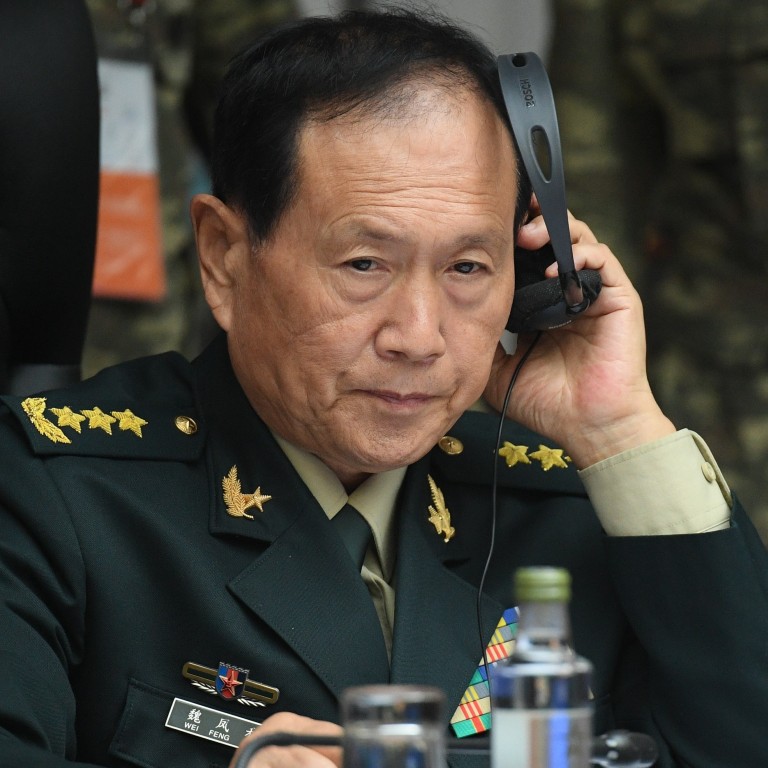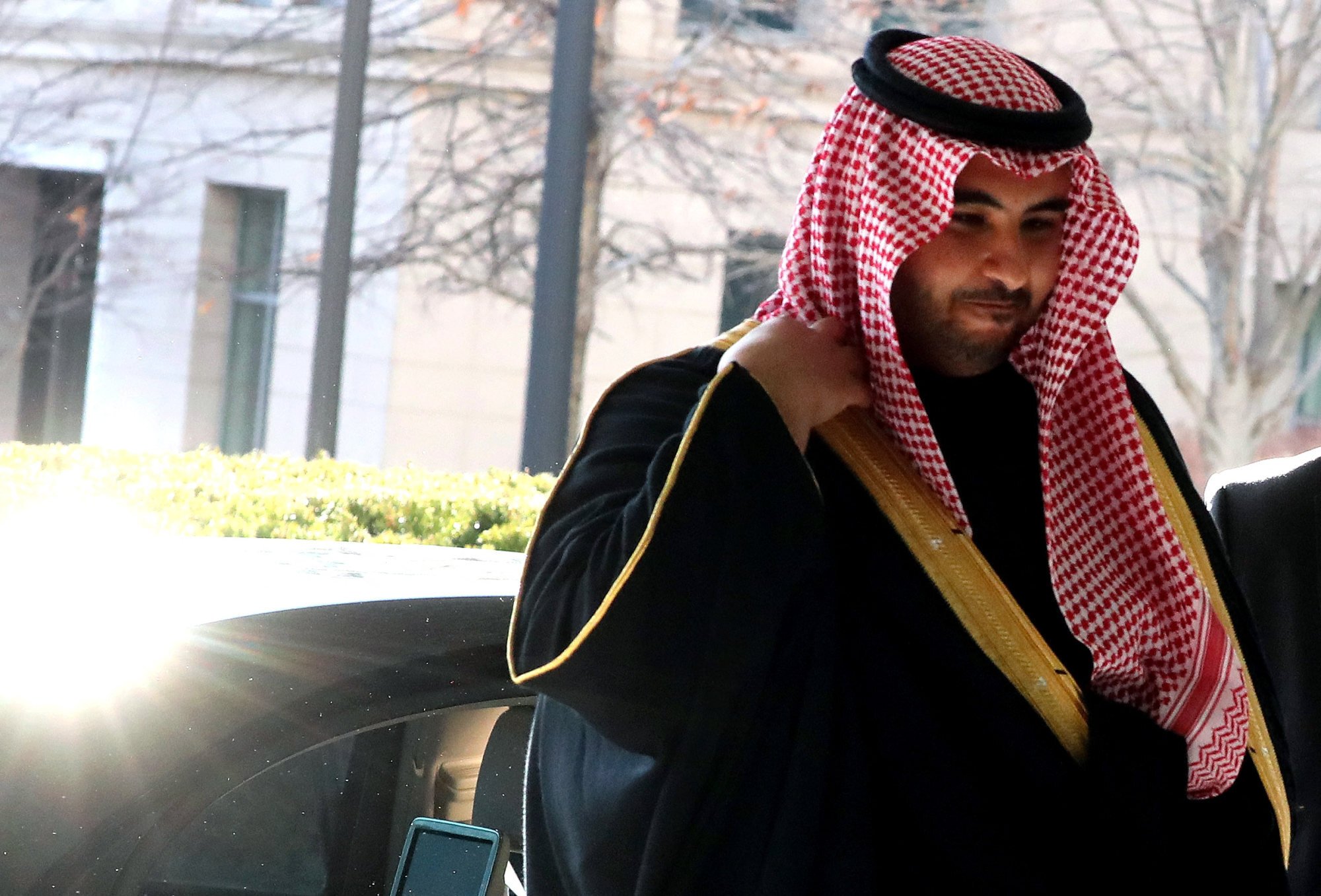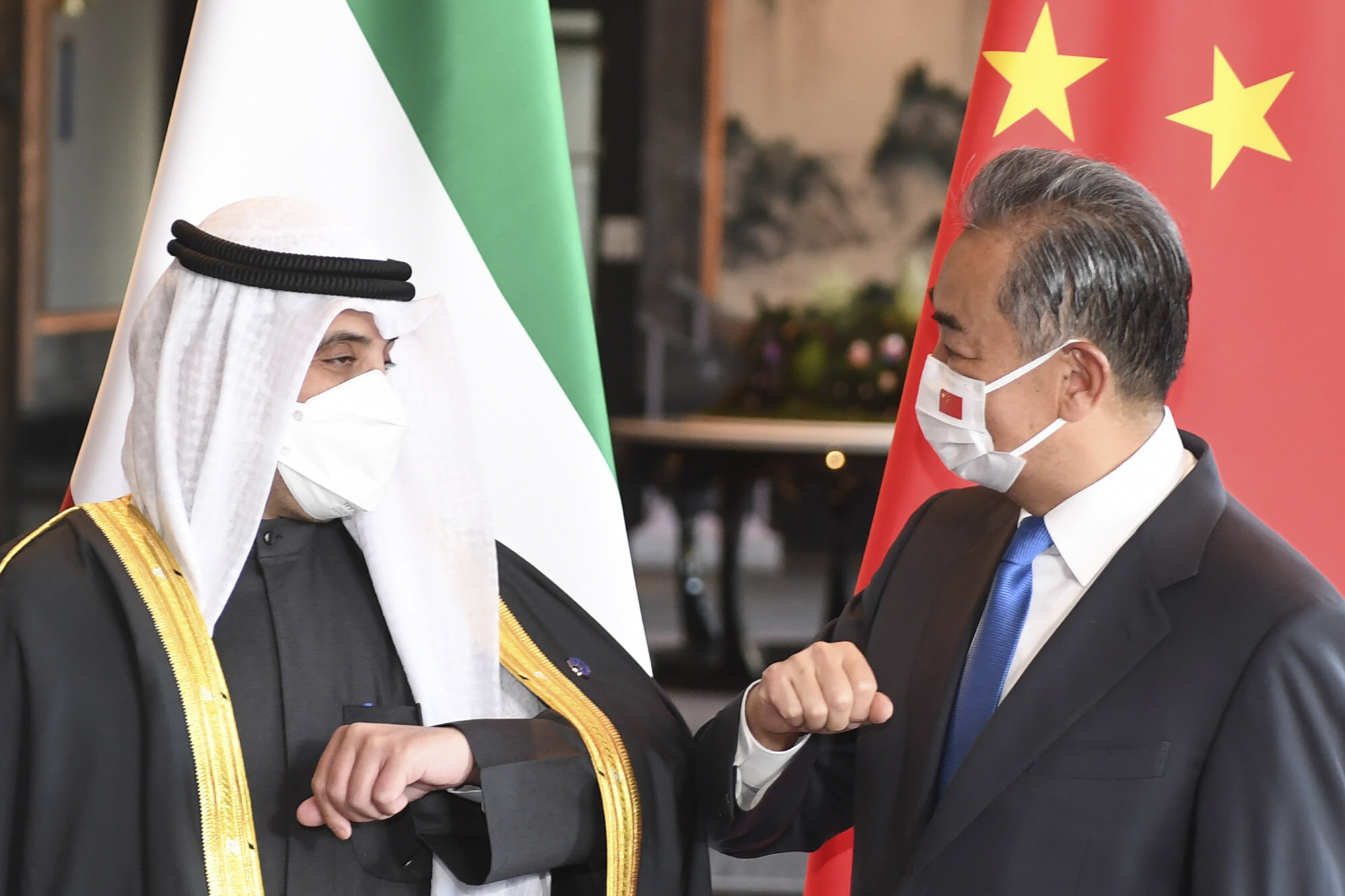
China, Saudi Arabia set for closer military ties as sun sets for US in Middle East
- Chinese defence chief in virtual meeting with Saudi side urges joint opposition to ‘hegemonic and bullying practices’, in apparent reference to the US
- Wei Fenghe also hails Saudi Arabia’s ‘strong support’ for policies on Taiwan, Hong Kong and Xinjiang – all major friction points in US-China ties
Chinese Defence Minister General Wei Fenghe, meeting the Saudi deputy defence chief via video link, pledged to push forward “practical cooperation [and] strengthening solidarity” between the two armies.
Saudi Arabia ‘at the top’ of China’s Middle Eastern diplomacy
The Chinese military was keen to “maintain strategic communication and push forward practical cooperation [with the Saudis]”, Wei said, according to a defence ministry readout of Wednesday’s virtual meeting.
In response, Khalid urged stronger cooperation “to enhance military ties to a higher level”, the readout said.

The meeting comes at a time when China is stepping up its diplomatic offensive in the Middle East, a new arena in its great power rivalry with the US – as the once-dominant force in the region shows signs of retreat.
China is a key broker in talks to revive the 2015 Iran nuclear deal, which fell through after the US pulled out in 2018. The landmark multilateral accord offers Iran billions of dollars worth of sanctions relief in return for curbs on its nuclear programme.
Later, he also held separate meetings with the top diplomats of Iran and Turkey.

China is Saudi Arabia’s top economic trading partner and the biggest importer of Saudi oil. During his meeting with Saudi Foreign Minister Prince Faisal bin Farhan al Saud, Wang described the two countries as “good friends, good partners and good brothers”, and said relations with the oil-rich country were “a priority” for Beijing’s foreign policy in the Middle East.
Chinese arms sales to Saudi Arabia in 2016-20 rose by nearly 400 per cent from the previous five years.
Why the US’ Middle East allies are losing faith in its security guarantees
CNN in December cited US assessment and satellite images to report that Saudi Arabia was building its own ballistic missiles with the assistance of China. That has sparked worries about complicating Washington’s efforts to bring Iran – the Saudis’ top regional rival – back to the negotiation table on the nuclear deal.
Saudi Arabia was the first foreign port of call for Biden’s predecessor Donald Trump when he came to power in 2017.

